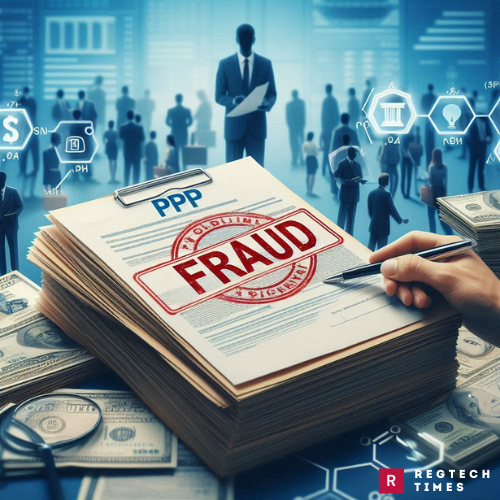In a significant legal development, three federal workers from Belleville, Illinois, have been indicted on serious charges related to the fraudulent acquisition of Paycheck Protection Program (PPP) funds. The indictments, returned by a federal grand jury, allege that these individuals exploited the PPP to secure substantial financial benefits under false pretenses, highlighting the persistent issue of fraud in pandemic relief efforts.
Charges Against Federal Workers
The Paycheck Protection Program (PPP), created under the Coronavirus Aid, Relief, and Economic Security (CARES) Act, aimed to offer forgivable loans to small businesses facing financial difficulties as a result of the COVID-19 pandemic. This program aimed to support businesses in retaining employees and covering essential operational expenses during a period of economic uncertainty. However, its rapid implementation and broad eligibility criteria left it vulnerable to exploitation by unscrupulous individuals.
The three federal workers indicted in this case are Katherine L. Liggins, 36, Eric C. Scott, 43, and Tamika N. Wilson, 44, all from Belleville. Each faces multiple charges related to PPP loan fraud, reflecting the severity and scale of their alleged misconduct.
Katherine L. Liggins, a former employee of the Veterans Affairs Regional Office in St. Louis County, was charged with one count of wire fraud and one count of making a material false statement. Liggins is accused of fraudulently obtaining more than $20,000 in PPP funds by providing misleading information during the application process.
Eric C. Scott is one of the federal workers charged with one count of wire fraud and one count of making a material false statement. Scott allegedly applied for and spent over $20,000 in PPP funds under false pretenses.
Kabbage Inc. Resolves Allegations of $120 Million Fraud in Paycheck Protection Program
Tamika N. Wilson: Facing two counts each of wire fraud, making a material false statement, and making a material false document. Wilson is accused of obtaining more than $40,000 in PPP loans through fraudulent means.
Government Response to Federal Workers’ Fraud
The seriousness of fraud involving federal workers is highlighted by the indictments, and the government’s commitment to addressing the misuse of pandemic relief resources is emphasized. U.S. Attorney Rachelle Aud Crowe stressed the importance of accountability, stating, “Countless small business owners and employees fell on hard economic times during the COVID-19 pandemic, and PPP loans allowed many to keep their families fed and lights on. We will ensure that those who sought to steal from the federal government under false pretenses and enrich themselves with PPP funds are held accountable under the law.”
The Renetta Golden-Larimore Case: Unraveling a $900,000 Paycheck Protection Program Fraud
Special Agent in Charge Gregory Billingsley of the Department of Veterans Affairs Office of the Inspector General’s Central Field Office echoed this sentiment, emphasizing that the indictments send a strong message about accountability for fraudulent activities. He expressed appreciation to the U.S. Attorney’s Office and law enforcement partners for their role in uncovering these fraudulent schemes.
Legal Implications for Federal Workers
It is important to note that an indictment is merely a formal charge and does not equate to a conviction. The defendants are considered innocent until they are proven guilty beyond a reasonable doubt in a court of law. If convicted, the legal consequences for wire fraud can be severe, with potential prison sentences of up to 20 years. Material false statements and document convictions may result in up to five years of imprisonment.
The investigation into these alleged crimes was conducted by the Department of Veterans Affairs Office of Inspector General, with Assistant U.S. Attorney Scott Verseman leading the prosecution. This case serves as a reminder of the importance of integrity in handling federal relief programs, especially during times of crisis. The ongoing legal process will likely contribute to future discussions on preventing fraud in federal relief initiatives.


